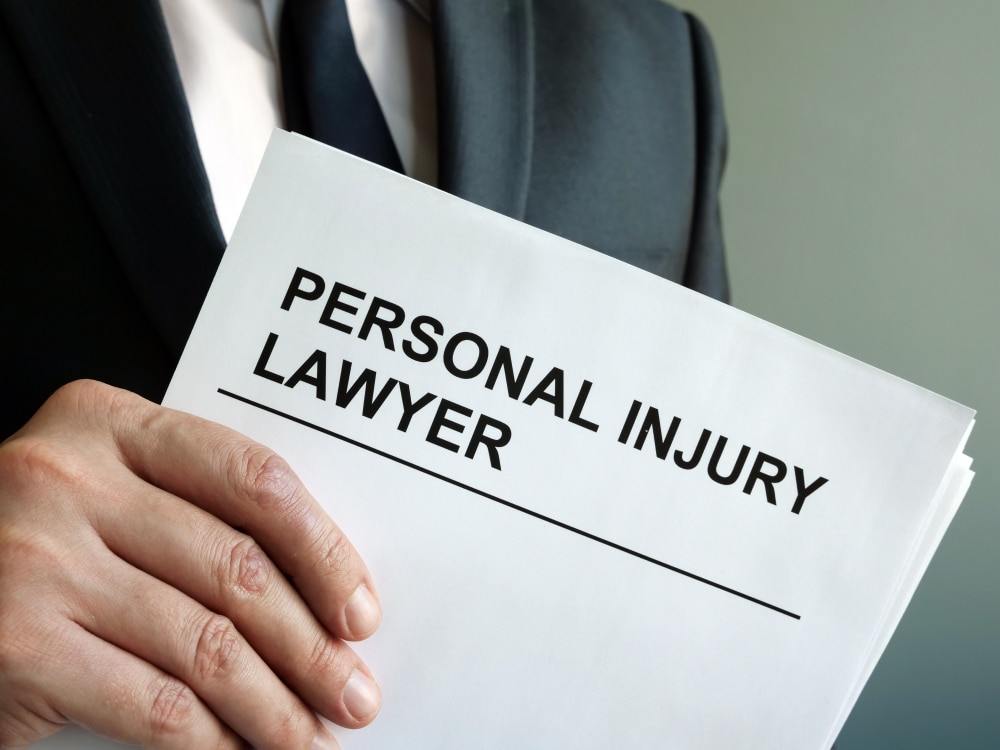Advertisements
Personal Injury Lawyer Jobs
Personal injury law is a dynamic and rewarding field that advocates for individuals who have suffered physical or psychological harm due to the negligence or misconduct of others. Personal injury lawyers play a crucial role in seeking justice for their clients and ensuring they receive fair compensation for their injuries. This comprehensive guide will delve into the world of personal injury lawyer jobs, exploring the education and skills required, typical job responsibilities, career prospects, and the impact of technological advancements on the legal profession.
Personal Injury Law
Personal injury law is a legal domain that encompasses a set of rules and regulations designed to provide recourse for individuals who have suffered harm, injury, or wrongful death due to the negligent, reckless, or intentional actions of others. This branch of law allows individuals, known as plaintiffs, to seek compensation for the damages they have incurred as a result of someone else’s wrongdoing.
The scope of personal injury law is broad, covering various circumstances where an individual may sustain harm. Some common situations falling under the purview of personal injury law include:
Traffic Accidents: Injuries resulting from car, truck, motorcycle, bicycle, or pedestrian accidents caused by negligent driving.
Premises Liability: Injuries that occur on someone else’s property due to unsafe conditions, such as slip and fall accidents or inadequate security measures.
Product Liability: Harm caused by defective or dangerous products, including design defects, manufacturing defects, or inadequate warnings.
Medical Malpractice: Injuries resulting from the negligence or incompetence of healthcare professionals, including doctors, nurses, or other medical practitioners.
Workplace Accidents: Injuries sustained on the job due to unsafe working conditions or employer negligence, leading to workers’ compensation claims or personal injury lawsuits.
Intentional Torts: Harm caused intentionally, such as assault, battery, or false imprisonment, which may result in both criminal charges and civil personal injury claims.
Defamation: Injuries caused by false statements that harm an individual’s reputation, including slander (spoken defamation) and libel (written defamation).
The primary objective of personal injury law is to provide a legal framework for injured individuals to seek compensation for their losses. This compensation, often in the form of monetary damages, aims to restore the injured party to their pre-incident condition as much as possible. Personal injury cases may be resolved through negotiations, settlements, or, if necessary, through civil litigation in a court of law.
It’s important to note that personal injury law varies by jurisdiction, and the specific elements required to prove a personal injury case may differ based on local laws and regulations. Legal professionals specializing in personal injury law help guide individuals through the complexities of the legal process to ensure their rights are protected and that they receive fair compensation for their injuries.
Advertisements
Types of Personal Injury Cases
Personal injury cases encompass a wide range of situations where individuals suffer harm due to the negligence, recklessness, or intentional actions of others. The legal system recognizes various types of personal injury cases, each involving unique circumstances and legal considerations. Here are some common types of personal injury cases:
Motor Vehicle Accidents:
-
- Car Accidents
- Truck Accidents
- Motorcycle Accidents
- Bicycle Accidents
- Pedestrian Accidents
Premises Liability:
-
- Slip and Fall Accidents
- Trip and Fall Accidents
- Inadequate Security Cases
- Dog Bites
Product Liability:
-
- Defective Products
- Dangerous Drugs
- Faulty Medical Devices
Medical Malpractice:
-
- Surgical Errors
- Misdiagnosis
- Birth Injuries
- Medication Errors
Workplace Accidents:
-
- Construction Accidents
- Industrial Accidents
- Slip and Fall at Work
Wrongful Death:
-
- Fatal Accidents Resulting from Negligence
Intentional Torts:
-
- Assault and Battery
- False Imprisonment
- Intentional Infliction of Emotional Distress
Defamation:
-
- Libel (Written Defamation)
- Slander (Spoken Defamation)
Nursing Home Abuse and Neglect:
-
- Physical Abuse
- Emotional Abuse
- Negligence in Care
Assault:
-
- Physical Assault
- Sexual Assault
Construction Accidents:
-
- Falls from Heights
- Electrocution
- Machinery Accidents
Sports Injuries:
-
- Injuries Resulting from Sporting Activities
Burn Injuries:
-
- Fires and Explosions
- Chemical Burns
Defective Security:
Advertisements
-
- Inadequate Security Leading to Assaults
Civil Rights Violations:
-
- Police Brutality
- False Arrest
Personal injury cases may involve a single type of injury or a combination of injuries. The legal process for each case can vary, and the success of a personal injury claim often depends on proving negligence or fault on the part of the responsible party. Legal professionals specializing in personal injury law help individuals navigate the complexities of these cases to seek compensation for their losses.
Becoming a Personal Injury Lawyer
Becoming a personal injury lawyer involves a combination of education, skills development, and practical experience. Here are the general steps to become a personal injury lawyer:
Educational Requirements:
- Bachelor’s Degree: Start by earning a bachelor’s degree from an accredited institution. While there is no specific major required, courses in pre-law, political science, or a related field can be beneficial.
- Law School Admission Test (LSAT): Take the LSAT, a standardized test required for admission to law school. A competitive LSAT score is crucial for acceptance into reputable law schools.
- Law School: Complete a Juris Doctor (JD) program at a law school accredited by the American Bar Association (ABA). During law school, focus on courses related to personal injury law, torts, and trial advocacy.
Gain Practical Experience:
- Internships and Clerkships: Seek internships or clerkships with law firms specializing in personal injury cases. This hands-on experience provides valuable insights into the legal processes and the practical aspects of handling personal injury claims.
- Participate in Mock Trials: Many law schools offer mock trial programs. Participating in these simulations helps develop courtroom skills, including presenting arguments, examining witnesses, and handling evidence.
Build Legal Skills:
- Legal Research and Writing: Hone skills in legal research and writing, crucial for preparing legal documents, briefs, and arguments.
- Negotiation Skills: Develop negotiation skills as personal injury lawyers often negotiate settlements on behalf of their clients.
- Communication Skills: Effective communication is essential for interacting with clients, opposing counsel, and presenting cases in court.
Pass the Bar Exam:
- After completing law school, aspiring lawyers must pass the bar exam in the state where they intend to practice. Each state has its own bar exam, which typically includes a combination of multiple-choice questions and essays.
Specialization in Personal Injury Law:
- Lawyers can choose to specialize in personal injury law. While it’s not mandatory to specialize, obtaining certification from organizations like the National Board of Trial Advocacy can enhance credibility in this field.
Join Professional Organizations:
- Become a member of professional organizations such as the American Association for Justice (AAJ) and state trial lawyer associations. These organizations offer resources, networking opportunities, and continuing education specific to personal injury law.
Continuing Legal Education (CLE):
- Stay updated on changes in personal injury law by participating in continuing legal education programs. Many states require lawyers to complete a certain number of CLE hours regularly.
Build a Reputation:
- Establish a strong professional reputation by delivering quality legal services, building a network, and earning the trust of clients.
Becoming a successful personal injury lawyer involves a commitment to ongoing learning, ethical practice, and dedication to advocating for clients who have suffered injuries due to the negligence of others.
Job Responsibilities of Personal Injury Lawyers
Personal injury lawyers play a crucial role in the legal system, representing individuals who have suffered physical or psychological injuries due to the negligence or wrongful actions of others. Their responsibilities encompass various tasks aimed at securing compensation for their clients. Here are the primary job responsibilities of personal injury lawyers:
Client Consultation:
Advertisements
- Conduct initial consultations with clients to understand the details of their cases. Gather information about the incident, injuries sustained, and potential liable parties.
Legal Research:
- Conduct thorough legal research to understand relevant laws, precedents, and regulations related to personal injury cases. Stay updated on any changes in legislation that may impact clients.
Case Evaluation:
- Assess the viability of a client’s case by examining evidence, witness statements, medical records, and other relevant documentation. Determine the strengths and weaknesses of the case.
Negotiation:
- Engage in negotiations with insurance companies, opposing counsel, and other involved parties to reach a fair settlement for the client. Negotiate terms that cover medical expenses, lost wages, and other damages.
Preparation of Legal Documents:
- Prepare legal documents, including complaints, pleadings, motions, and discovery requests. Ensure all documentation adheres to legal standards and deadlines.
Court Filings:
- File necessary documents with the court within specified deadlines. This includes initiating lawsuits, responding to motions, and submitting evidence.
Discovery Process:
- Engage in the discovery process, which involves obtaining information and evidence from the opposing party. This may include depositions, interrogatories, and requests for documents.
Client Advocacy:
- Serve as an advocate for clients during court proceedings. Present the client’s case persuasively, question witnesses, and argue legal points to support the client’s position.
Legal Counsel:
- Provide legal advice and counsel to clients regarding the potential outcomes of their cases. Explain legal processes and guide clients through the steps involved in pursuing a personal injury claim.
Settlement Agreements:
- Negotiate and draft settlement agreements when a resolution is reached. Ensure that all terms are clear and protect the client’s interests.
Trial Representation:
- Represent clients in court if a settlement cannot be reached and the case goes to trial. Present evidence, examine witnesses, and make legal arguments to the judge and jury.
Stay Informed on Industry Trends:
- Stay informed about developments in personal injury law, including changes in regulations, landmark cases, and emerging legal strategies.
Client Communication:
- Maintain open and clear communication with clients throughout the legal process. Keep clients informed about the progress of their cases and provide realistic expectations.
Damages Assessment:
- Evaluate the extent of damages suffered by clients, including medical expenses, property damage, pain and suffering, and future financial impact.
Ethical Practice:
- Adhere to ethical standards and legal principles in all interactions. Uphold the duty to act in the best interests of clients.
Personal injury lawyers play a pivotal role in helping individuals seek justice and fair compensation for the physical, emotional, and financial hardships they endure due to personal injuries.
Advertisements
Career Prospects and Specializations
Personal injury law offers a range of career prospects and specializations for lawyers seeking to specialize in this field. The diverse nature of personal injury cases allows attorneys to focus on specific areas based on their interests and expertise. Here are some notable career prospects and specializations within personal injury law:
Motor Vehicle Accidents:
- Scope: Specializing in cases involving car accidents, motorcycle accidents, truck accidents, and other motor vehicle collisions.
- Responsibilities: Handling cases related to negligence, reckless driving, defective vehicle parts, and insurance disputes.
Medical Malpractice:
- Scope: Representing clients who have suffered injuries due to medical negligence, including misdiagnosis, surgical errors, and medication mistakes.
- Responsibilities: Conducting thorough medical research, working with expert witnesses, and navigating complex healthcare laws.
Product Liability:
- Scope: Dealing with cases where injuries result from defective products or unsafe goods.
- Responsibilities: Investigating product defects, establishing liability, and pursuing claims against manufacturers and distributors.
Premises Liability:
- Scope: Addressing injuries that occur on another person’s property due to unsafe conditions, such as slip and fall accidents.
- Responsibilities: Proving negligence, assessing property owner responsibilities, and navigating premises liability laws.
Workplace Injuries:
- Scope: Handling cases related to injuries sustained in the workplace, including construction accidents and industrial accidents.
- Responsibilities: Understanding workers’ compensation laws, pursuing third-party claims, and ensuring fair compensation for workplace injuries.
Defamation and Libel:
- Scope: Representing clients who have suffered harm to their reputation due to false statements.
- Responsibilities: Proving defamation, assessing damages, and pursuing legal action against parties responsible for false statements.
Assault and Battery:
- Scope: Addressing cases where individuals suffer physical harm due to intentional acts of violence.
- Responsibilities: Establishing liability, assessing damages, and pursuing claims against individuals responsible for assault or battery.
Wrongful Death:
- Scope: Representing surviving family members in cases where a person’s death results from another party’s negligence.
- Responsibilities: Pursuing compensation for funeral expenses, loss of income, and emotional distress.
Catastrophic Injuries:
- Scope: Specializing in cases involving severe injuries, such as traumatic brain injuries, spinal cord injuries, and amputations.
- Responsibilities: Assessing long-term medical needs, calculating future damages, and ensuring comprehensive compensation.
Dog Bites:
- Scope: Addressing cases where individuals suffer injuries due to dog attacks.
- Responsibilities: Establishing liability, assessing damages, and navigating local dog bite laws.
Aviation Accidents:
- Scope: Handling cases related to injuries or fatalities resulting from aviation accidents.
- Responsibilities: Collaborating with aviation experts, investigating the cause of accidents, and pursuing claims against responsible parties.
Railroad Accidents:
- Scope: Representing individuals injured in train accidents or incidents involving railroad negligence.
- Responsibilities: Investigating safety violations, pursuing compensation for injuries, and navigating federal railroad regulations.
Nursing Home Abuse:
Advertisements
- Scope: Advocating for the rights of elderly individuals who suffer abuse or neglect in nursing homes.
- Responsibilities: Investigating instances of abuse, holding facilities accountable, and pursuing compensation for victims.
Sports Injuries:
- Scope: Addressing cases where individuals sustain injuries due to negligence or unsafe conditions in sports-related activities.
- Responsibilities: Navigating the complexities of liability in sports environments and pursuing claims against responsible parties.
Psychological Injuries:
- Scope: Representing individuals who suffer psychological harm due to negligence, such as emotional distress or post-traumatic stress disorder.
- Responsibilities: Establishing the connection between negligence and psychological injuries, pursuing damages for emotional distress.
Environmental Hazards:
- Scope: Handling cases related to injuries resulting from exposure to hazardous substances or environmental negligence.
- Responsibilities: Investigating environmental hazards, establishing causation, and pursuing claims against responsible parties.
Personal injury lawyers can choose to specialize in one or more of these areas based on their passion, skills, and the specific needs of their clients. Specialization allows attorneys to deepen their expertise and better serve those seeking justice for various types of personal injuries.
Technological Advancements in Personal Injury Law
Technological advancements have significantly impacted the field of personal injury law, enhancing the way lawyers handle cases, gather evidence, and present arguments. Here are key technological advancements transforming the landscape of personal injury law:
Electronic Case Management Systems:
- Advancement: Digital case management systems streamline the organization of case-related information, including documents, correspondence, and court filings.
- Impact: Lawyers can access case details from anywhere, collaborate with team members more efficiently, and ensure better organization of case materials.
Virtual Reality (VR) and Augmented Reality (AR):
- Advancement: VR and AR technologies are used to recreate accident scenes or medical conditions, offering a more immersive experience for judges and juries.
- Impact: Enhances the presentation of evidence, making it easier for legal professionals to convey complex scenarios and improve juror understanding.
Digital Forensics:
- Advancement: Digital forensics tools help in the retrieval and preservation of electronic evidence, including data from smartphones, computers, and other devices.
- Impact: Enables lawyers to uncover crucial evidence in cases involving electronic records, such as texting while driving or workplace accidents involving digital systems.
Telemedicine and Medical Technology:
- Advancement: Telemedicine facilitates remote medical consultations and examinations, and medical technology aids in comprehensive diagnostics and treatment.
- Impact: Accelerates the assessment of injuries, enables real-time medical evaluations, and enhances communication between attorneys and medical professionals.
Blockchain Technology:
- Advancement: Blockchain ensures secure and transparent storage of critical legal documents, such as medical records, contracts, and settlement agreements.
- Impact: Enhances the integrity of legal documents, reduces the risk of tampering, and provides a reliable and unalterable record of transactions.
Artificial Intelligence (AI) in Legal Research:
- Advancement: AI-driven legal research tools assist lawyers in analyzing case law, statutes, and legal precedents more efficiently.
- Impact: Speeds up the research process, allowing attorneys to identify relevant legal authorities, build stronger arguments, and stay updated on the latest legal developments.
E-Discovery Software:
- Advancement: E-discovery tools automate the identification, collection, and analysis of electronic data for legal cases.
- Impact: Reduces the time and costs associated with discovery, ensuring a more thorough examination of electronic evidence in personal injury cases.
Digital Court Reporting:
- Advancement: Digital court reporting systems replace traditional stenographers, offering accurate and easily searchable transcriptions of court proceedings.
- Impact: Improves the accuracy of legal transcripts, allows for keyword searches, and facilitates quicker access to relevant courtroom discussions.
Social Media Investigations:
- Advancement: Lawyers use social media monitoring tools to gather evidence, such as posts, photos, and videos, relevant to personal injury cases.
- Impact: Provides insights into the activities and statements of involved parties, helping build a more comprehensive case.
Video Conferencing Platforms:
Advertisements
- Advancement: Video conferencing platforms enable remote depositions, client meetings, and court hearings.
- Impact: Enhances accessibility, reduces travel requirements, and ensures continued legal proceedings during unforeseen circumstances, such as the COVID-19 pandemic.
Predictive Analytics:
- Advancement: Predictive analytics tools analyze data to forecast case outcomes, helping lawyers assess the potential success of a personal injury claim.
- Impact: Assists in strategic decision-making, allowing attorneys to allocate resources effectively and provide clients with realistic expectations.
Cloud-Based Document Storage:
- Advancement: Cloud storage solutions facilitate secure and accessible storage of legal documents, promoting collaboration among legal teams.
- Impact: Enhances document security, ensures data backup, and enables seamless sharing of case-related information.
Electronic Signatures:
- Advancement: Electronic signature platforms enable the digital signing of legal documents, reducing the need for physical paperwork.
- Impact: Streamlines document execution processes, improves efficiency, and supports remote collaboration.
Digital Presentation Tools:
- Advancement: Tools like digital exhibits and interactive presentations enhance the visual impact of evidence during trials.
- Impact: Engages judges and juries more effectively, aiding in the persuasive communication of complex information.
Client Communication Platforms:
- Advancement: Secure communication platforms enable attorneys to communicate with clients, share updates, and receive information electronically.
- Impact: Improves client engagement, enhances transparency, and ensures timely exchange of critical information.
The integration of these technological advancements into personal injury law practices has not only streamlined legal processes but has also empowered lawyers to provide more effective representation for their clients. Staying abreast of these technological developments is crucial for legal professionals aiming to navigate the ever-evolving landscape of personal injury law.
Conclusion
In conclusion, personal injury lawyer jobs are dynamic, challenging, and crucial for seeking justice for those who have been harmed. This guide provides aspiring lawyers and individuals interested in the legal profession with a comprehensive overview of the personal injury law field, offering insights into the educational requirements, skills, job responsibilities, career prospects, and the impact of technology on this evolving legal practice. Whether you’re considering a career as a personal injury lawyer or seeking legal representation, this guide aims to provide valuable information about this vital aspect of the legal profession.
Advertisements






